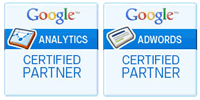What is PPC?
PPC stands for pay per click and is a model of internet marketing where advertisers pay for each click on one of their ads. In essence, it’s a way to buy visits to your website instead of trying to organically “acquire” those visits.
Do you know when your ad will appear? It only appears if the keyword search query matches the keyword list provided by the advertiser and the relevant content is displayed on the content website. These types of ads are called sponsored ads or sponsored links that appear at the top or side of search engine results pages.
Why Your Business Needs PPC Advertising?
Well-structured Pay Search Marketing (PPC) campaigns allow websites to quickly generate targeted traffic. As traffic increases rapidly, so does the conversion. Search advertising can help websites stop traffic cakes and dramatically improve ROI. Many people mistakenly assume that PPC is ineffective or simply not suitable for their business. This view is usually the result of poorly structured campaigns and does not lead to good results. PPC requires planning and management to develop a successful strategy, but the truth is that any company can benefit from incorporating PPC into its marketing toolkit.
The top five reasons this is true are!
1. Establishing an online presence: For small businesses that have just entered the online arena, using PPC advertising is a great way to disseminate information about a product or service. While it can take some time to rank high on SERPs with SEO and other techniques, PPC can instantly get business functionality on the first page of popular search engines such as Google and Bing. This gives small businesses the visibility they need to attract more visitors to their website and generate leads.
2. Budget-friendly: Budget constraints are the biggest problem for small businesses, as they tend to get out of hand, especially when it comes to marketing and advertising. However, PPC advertising allows you to manage how much you pay per click and budget your campaign. Everything is measurable, so cost and profit analysis become a child’s play.
3. Measure performance: Another primary reason why this online advertising method is helpful for small businesses is that it allows you to measure the performance of your PPC campaign from different angles. You can easily see everything related to your campaign, including clicks, views, visits, costs, and profits incurred during a particular period.
4. Possibility to be ranked higher than competitors: PPC is attractive because it has the potential to display (free) websites that aren’t organically ranked on Google’s first page via SEO on the first page above their competitors. This is important because research shows that the first page of Google gets 71.3% of all search clicks for a keyword. About 5ch is given to the 2nd and 3rd sides. 5. Increase brand awareness: After all, PPC advertising is valid even if it’s not clicked. This is because your brand will become more well-known, and you will be more likely to turn to your business when you need the products and services offered by your ad visitors. It’s even more important to direct the campaign to people who are particularly motivated to buy. Search engine optimization (SEO) can take months, but PPC provides immediate visibility to the relevant audience. Paid ads on Google AdWords rank first in organic search results on the first page.








